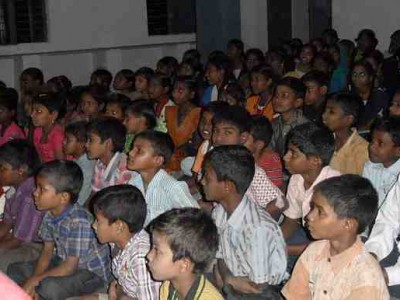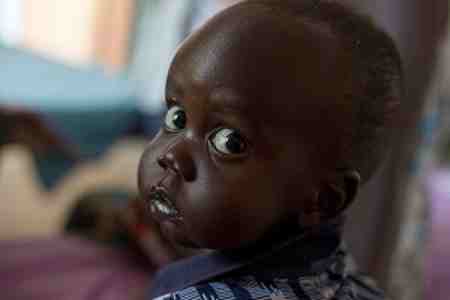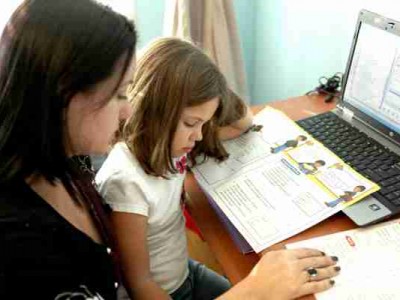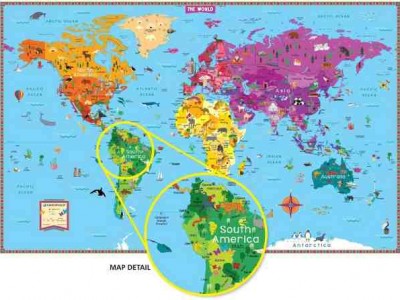
South Sudan: Lack of Funds Puts Lives of Children at Risk

One-year-old Godfrey was treated for acute malnutrition in the UNICEF supported Al-Shabbah Children’s Hospital, in Juba, South Sudan.
Humanitarian funding for South Sudan, the world’s youngest country, has collapsed, UNICEF said Friday, putting the lives of tens of thousands of children at risk.
Despite an urgent request by UNICEF in South Sudan for US$155 million in 2016 to support lifesaving interventions such as malnutrition treatment, health care and clean water to support the over 5 million children affected by the crisis, just $27 million – 18 per cent of the appeal – has been received to date.
The gap – some $128 million – will mean 3.3 million children will not be vaccinated against measles, 260,000 children affected by conflict will not be supported to return to school, and efforts to reunify 7,300 separated children with their families will be halted. Essential nutrition supplies will run out in August.
[ How India Abuses Children’s Right to Education ]
“This forgotten emergency is threatening the lives of tens of thousands of children,” said Jonathan Veitch, Representative, UNICEF South Sudan. “The reality is that without adequate support we will simply not be able to provide the services that are needed to prevent children dying from malnutrition, diarrhoea, malaria and vaccine-preventable diseases.”
South Sudan’s violent crisis is now in its third year and fighting has spread to previously peaceful areas in the west of the country, including Wau and Western Equatoria, where UNICEF did not plan to have to provide a lifesaving emergency response.
[ Visit and Support RMN Foundation Free Schools for Children ]
Meanwhile, the peak of the lean season in May will bring with it the threat of famine to over 40,000 people in central Unity State that have been heavily affected by violence.
In addition to these urgent needs, there is also alarm over the growing number of poor, urban families that are struggling to eat even one meal a day as a result of skyrocketing food prices.
In the capital city Juba, child malnutrition rates are three times higher than in surrounding rural areas.
Photo courtesy: UNICEF


